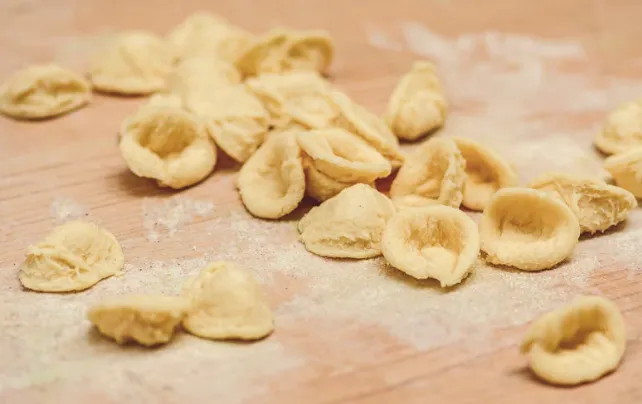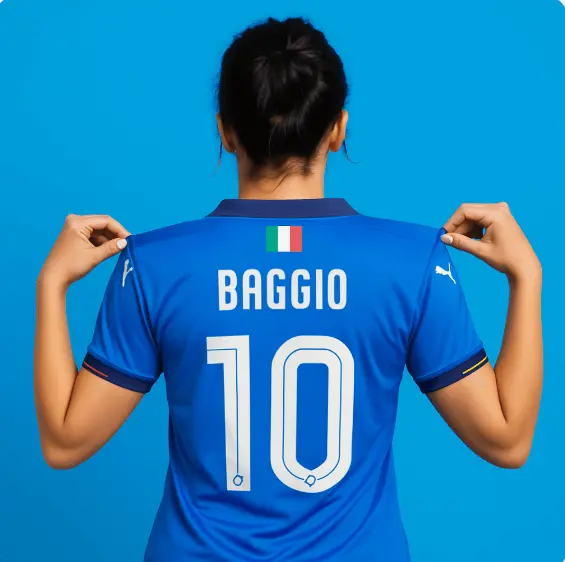 Pronoun ne
Pronoun ne
Lesson forty-two


Lesson forty-one
Relative pronouns are an essential part of Italian grammar. They allow you to connect ideas smoothly, avoid repetition, and sound more natural and fluent in both spoken and written Italian. Instead of repeating the same noun, a relative pronoun refers back to it and introduces additional information.
For example:
I saw a movie yesterday. The movie was funny.
The movie that I saw yesterday was funny.
That / Who / Which
The most commonly used relative pronoun in Italian is che. It can refer to people, animals, or things and can be translated as that, who, or which in English. Unlike English, Italian uses the same word regardless of whether the pronoun refers to a person or an object.
Che can function as either the subject or the direct object of a relative clause. Because of its flexibility, it is usually the safest and most common choice for learners.
Ho mangiato del cibo che era molto buono.
I ate some food that was very good.
Il ragazzo che ho incontrato l'altro giorno era molto simpatico.
The boy I met the other day was very nice.
Ieri ho visto un film che era divertente.
Yesterday, I saw a movie that was funny.
Il sogno che ho fatto stanotte era strano.
The dream I had last night was strange.
Whom / Which (with prepositions)
When a relative clause requires a preposition, che cannot be used on its own. In these cases, Italian uses cui, which must always be preceded by the appropriate preposition (a, di, da, in, con, su, per).
The structure is simple: preposition + cui. This form is used for both people and things.
La cosa a cui tengo di più è la mia famiglia.
The thing I care about most is my family.
Le uniche persone a cui l’ho detto siete voi due.
The only people I told are you two.
Ho visto il film di cui tutti parlano.
I saw the movie everyone is talking about.
Tu sei la persona di cui mi fido di più.
You are the person I trust the most.
In addition to relative clauses, che is frequently used in exclamatory sentences. In this context, it often translates as what a or how in English and is typically placed at the beginning of the sentence.
Che bella giornata!
What a beautiful day!
Ma che bella giornata!
But what a beautiful day!
Non posso venire giovedì, ma che peccato.
I can't come on Thursday — what a pity.
Another word commonly used in exclamations is quanto. It means how or how much and agrees in gender and number with the adjective or noun it refers to.
Quanto sei bello!
How handsome you are!
Quanto è buono questo cibo!
How good this food is!
Where
Dove means where and is used as a relative pronoun when referring to a place. It often replaces more formal expressions such as in cui or nel quale, especially in spoken Italian.
L'appartamento dove abito è in centro.
The apartment where I live is downtown.
Il ristorante dove sono stata ieri era costoso.
The restaurant where I was yesterday was expensive.
Which (referring to an entire idea)
When the relative pronoun refers not to a specific noun but to an entire sentence or situation, Italian uses il che. This structure is especially common in written Italian.
Luca è arrivato in ritardo, il che mi ha fatto arrabbiare.
Luca arrived late, which made me angry.
Giacomo ha ottenuto il lavoro, il che lo ha reso molto felice.
Giacomo got the job, which made him very happy.
In everyday conversation, il che is often replaced by more informal expressions such as e questo or e ciò. These forms are very common in spoken Italian.
Luca è arrivato in ritardo, e questo mi ha fatto arrabbiare.
Luca arrived late, and this made me angry.
Giacomo ha ottenuto il lavoro, e ciò lo ha reso molto felice.
Giacomo got the job, and that made him very happy.
Which (formal)
Il quale (and its forms la quale, i quali, le quali) is the formal equivalent of che. It must agree in gender and number with the noun it replaces and is mainly used in formal or written Italian.
Ieri ho visto un film, il quale era divertente.
Yesterday I saw a movie, which was funny.
L'altro giorno ho incontrato una ragazza, la quale era molto simpatica.
The other day I met a girl, who was very nice.
Italian relative pronouns help you connect sentences smoothly and avoid repetition. Mastering them will make your Italian sound more natural, fluent, and precise.
Here is a quick overview of the most important points:
As a general rule, start by using che and cui confidently. The other forms will come naturally as you are exposed to more spoken and written Italian. With regular practice, relative pronouns will quickly become an intuitive part of your language skills.
 Pronoun ne
Pronoun ne
Lesson forty-two
 Pronoun ci
Pronoun ci
Lesson forty-three
 Pronoun si
Pronoun si
Lesson forty-four
 Subjunctive mood
Subjunctive mood
Lesson forty-five
 Passive
Passive
Lesson forty-six
 Trapassato prossimo
Trapassato prossimo
Lesson forty-seven